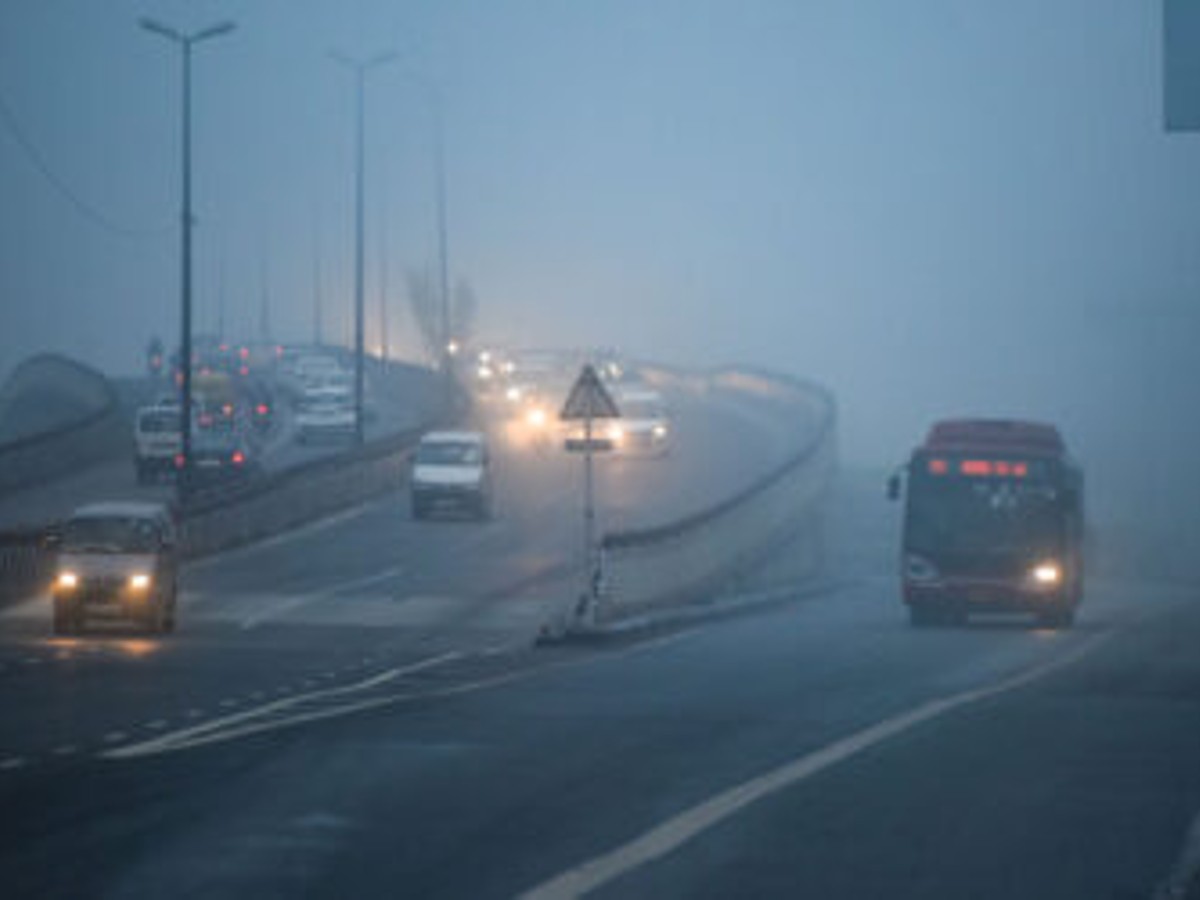
Vehicles ply on the road with their headlights on. (Representational photo: Getty)
The Delhi government has mandated that all buses entering the national capital from Haryana must operate on electric, CNG, or BS-VI diesel. Similarly, buses from NCR regions of Uttar Pradesh and Rajasthan are required to adhere to these standards effective Wednesday.
According to the city’s transport department, starting July 1 next year, buses arriving in Delhi from any city or town in Haryana, Rajasthan, and Uttar Pradesh must exclusively be electric, CNG, or BS-VI diesel vehicles.
The Commission for Air Quality Management (CAQM) announced that beginning November 1, only electric, CNG, and BS VI-compliant diesel buses will be permitted to travel between Delhi and cities and towns in Haryana, Uttar Pradesh, and Rajasthan within the National Capital Region (NCR).
This measure is aimed at addressing air pollution caused by diesel-powered buses in the region, with the overarching goal of transitioning to electric vehicles. In a circular distributed to Haryana, Uttar Pradesh, and Rajasthan, the transport department outlined the guidelines set to take effect from Wednesday.
The circular stipulates, “All state government bus services between any city/town in the state of Haryana and Delhi shall be operated only through EV/CNG/BS-VI diesel buses w.e.f. 01.11.2023. This shall also be applicable for bus services being operated by State PSUs and private entities, etc.”
For buses originating from Rajasthan, the circular specifies, “All bus services between any NCR city/town in Rajasthan and Delhi, as also to any other city or town in NCR, shall be electric, CNG, or BS-VI diesel ones.” It further adds that “All bus services from non-NCR areas of Rajasthan to Delhi shall also be ensured through EV/CNG/BS-VI diesel buses w.e.f. 01.01.2024.”
Similar guidelines are established for Uttar Pradesh. “All bus services between any NCR city/town in the state of Uttar Pradesh and Delhi shall be operated only through EV/CNG/BS-VI diesel buses w.e.f. 01.11.2023,” the circular states. Additionally, “All 1,433 state government buses operating between non-NCR areas of the state to Delhi and NCR areas of other states shall also be ensured through BS-VI diesel compliant buses w.e.f. 01.07.2024.”
The circular emphasizes that any deviation from these norms will be considered a violation of the Motor Vehicles Act, 1988, and could lead to legal action.
Bharat Stage emission standards set limits on air pollutants emitted by vehicles in India, focusing on carbon monoxide, particulate matter, fuel efficiency, and engine design. As vehicle manufacturers produce vehicles complying with these standards, oil companies supply fuel adhering to the BS-VI standards, recognized as the world’s cleanest fuel.
To monitor compliance, the department has deployed 18 enforcement teams at various border points to inspect incoming buses for adherence to the specified norms.
(With PTI inputs)
AQI rises to 208, slipping into ‘poor’ category, according to the Central Pollution Control Board
Dilli 6 – Ishq-e-Dilli at Edesia presents a carefully sequenced journey through familiar flavours from…
Two youth arrested for killing a 55-year-old woman during a robbery in Jyoti Nagar; stolen…
Scheme aims to provide affordable meals to over 1 lakh people daily, with each canteen…
Featuring works by Krishen Khanna and Prabhakar Kolte, the exhibition explores Indian modernism through figurative…
Police are probing the stabbing death of a 36-year-old man found near Sanjay Lake in…